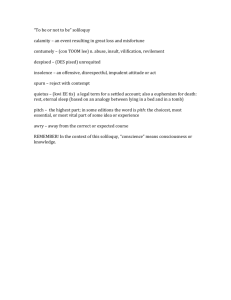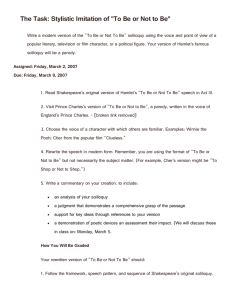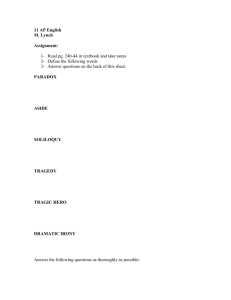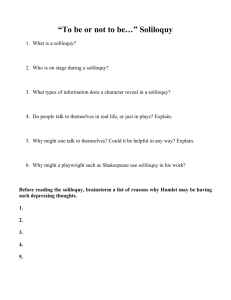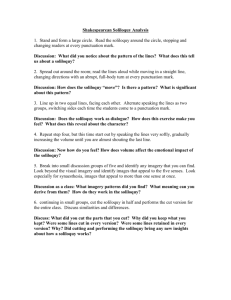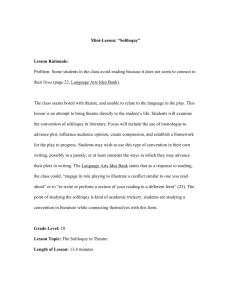Soliloquy Directions
advertisement
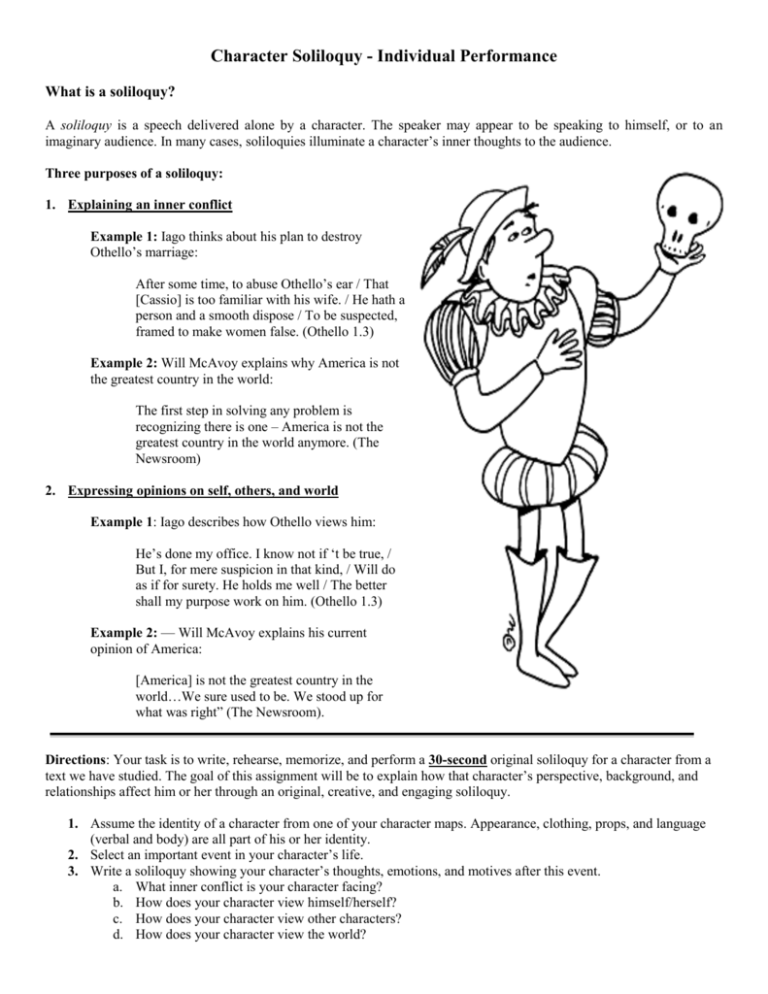
Character Soliloquy - Individual Performance What is a soliloquy? A soliloquy is a speech delivered alone by a character. The speaker may appear to be speaking to himself, or to an imaginary audience. In many cases, soliloquies illuminate a character’s inner thoughts to the audience. Three purposes of a soliloquy: 1. Explaining an inner conflict Example 1: Iago thinks about his plan to destroy Othello’s marriage: After some time, to abuse Othello’s ear / That [Cassio] is too familiar with his wife. / He hath a person and a smooth dispose / To be suspected, framed to make women false. (Othello 1.3) Example 2: Will McAvoy explains why America is not the greatest country in the world: The first step in solving any problem is recognizing there is one – America is not the greatest country in the world anymore. (The Newsroom) 2. Expressing opinions on self, others, and world Example 1: Iago describes how Othello views him: He’s done my office. I know not if ‘t be true, / But I, for mere suspicion in that kind, / Will do as if for surety. He holds me well / The better shall my purpose work on him. (Othello 1.3) Example 2: — Will McAvoy explains his current opinion of America: [America] is not the greatest country in the world…We sure used to be. We stood up for what was right” (The Newsroom). Directions: Your task is to write, rehearse, memorize, and perform a 30-second original soliloquy for a character from a text we have studied. The goal of this assignment will be to explain how that character’s perspective, background, and relationships affect him or her through an original, creative, and engaging soliloquy. 1. Assume the identity of a character from one of your character maps. Appearance, clothing, props, and language (verbal and body) are all part of his or her identity. 2. Select an important event in your character’s life. 3. Write a soliloquy showing your character’s thoughts, emotions, and motives after this event. a. What inner conflict is your character facing? b. How does your character view himself/herself? c. How does your character view other characters? d. How does your character view the world?
